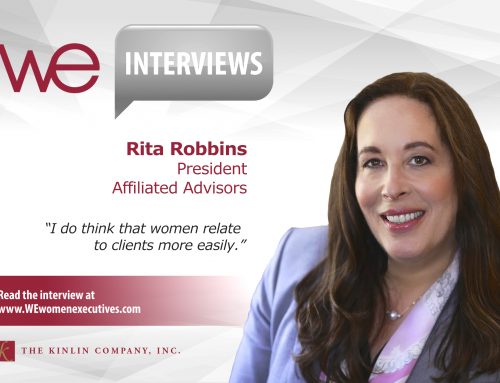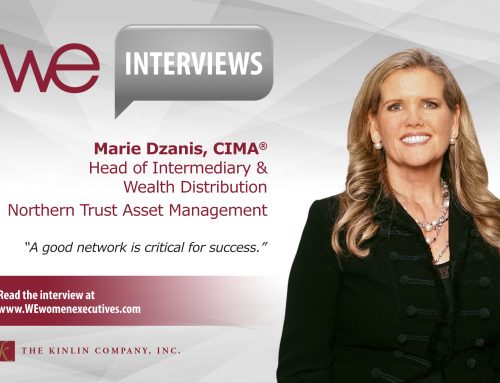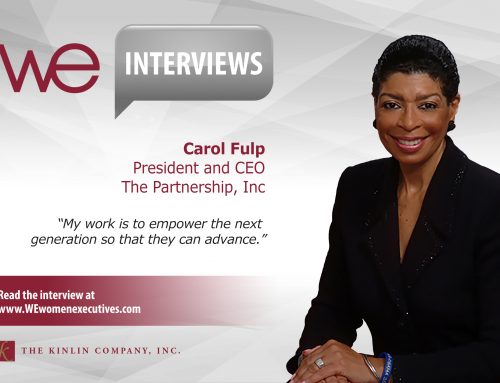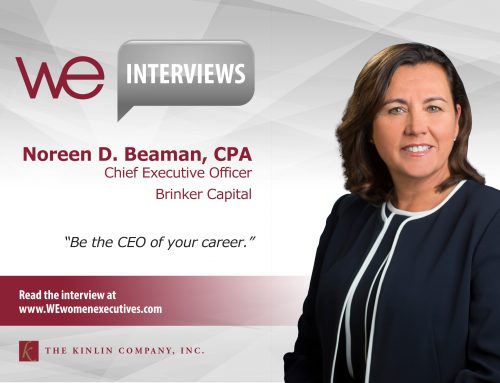As AllianceBernstein’s Head of Human Capital and Chief Talent Officer, Lori Massad knows that the identification and cultivation of high-potential executives is one of the most important components of her job. And, in order to attract and retain the talent that will take her company to the next level, Massad is a big believer in taking a long-range view of the firm’s employees.
Your Life Is A Novel Made Of Many Different Chapters
At the heart of Massad’s human capital management philosophy is the idea that life can be thought of as a novel, which is made up of many chapters.
The chapter analogy also applies to how one evaluates employee progress and potential. “When I look at a woman who’s struggling to handle the commitments of both her job and her family, I say, ‘We’ve got to get this woman through this chapter, and then she’ll be golden.’”
Massad said, “I’ve tried to redefine potential as a more fluid concept. If an employee is labeled low, medium or high potential, they are not stuck with that label for the rest of their career. We are continually reevaluating each individual’s potential. And that idea of fluidity is very important to maintaining a gender balance up through the pipeline.”
Massad has personally experienced chapters of her life when she found balancing career and family a nearly impossible task.
“There were times in my life when I couldn’t work the twelve hour days I do now. I’m proof there’s a lot of benefit to giving women the flexibility and the empathy they need to keep working while raising a family. Once the woman is ready to come back full-time, the benefits of that employee’s loyalty and commitment are invaluable.”
Don’t Get Off The Train
When women ask Massad for advice about balancing work and family, she tells them that they should think of their career as a train.
She explains, “There’s the express train, when your career is your priority, and you can really go all out. And there’s the local train. It’s slow and it makes a lot of stops, but you are still going somewhere. Throughout your career, you should have the confidence that even if you get on the local for a while, you can transfer back to the express when you are ready. The main objective is to not get off the train so that you can maintain the option to catch the express.”
Though Massad advises women to stay on the train, she understands how impossible that can sometimes seem. She shared times when she felt tempted to quit her job because she felt overwhelmed by her commitments at home.
“When my son Tucker was diagnosed with Type 1 diabetes, I went to my boss and told him I was considering quitting. My boss said, ‘Why are you making this decision under so much duress?’”
He then told her she could have as much paid time off as she needed to take care of her son and figure out a plan. Two weeks later, Massad was back at the office.
“I was so panicked and overwhelmed that I thought my only choice was to quit. I now realize that when there’s strife in your family, it does mean you will spend less time at work, but it doesn’t mean you have to give up your job.”
The Importance of Sponsorship
Massad is adamant that mentoring relationships are insufficient at propelling the careers of high-potential executives.
“I feel that mentoring has little impact on women’s progression,” Massad stated. “Women look for mentors, while men find sponsors. A mentor gives advice, but a sponsor advocates for you. A sponsor will put their credibility on the line for you.”
For women to advance their careers, Massad strongly believes that they must aggressively seek out sponsors. “But,” she cautioned, “sponsorship is a two-way street. In order to get someone to advocate for you, you have to do something for them.”
As she was coming up in her career, Massad identified key senior executives who could help her get to where she wanted to go. She approached them, but she did not ask for their help at first. On the contrary, she asked what she could do for them.
“It wasn’t about my agenda,” she explained. “It was about what that person needed. That’s the way to develop a relationship with a sponsor.”
Today, Massad is a passionate sponsor of many high-potential women executives. Part of her passion is expressed in her directness to those she sponsors.
“I start out by saying to the women I sponsor, ‘I want to sponsor you but you have to keep being an outstanding performer because I’m putting my credibility on the line for you.’”
She continued, “I tell them, ‘Secondly, you’re going to get some really tough feedback from me. You’ve got to learn from it rather than be offended by it. And most importantly, tell me specifically what you want, so I can work towards getting you there.’”
The Push and Pull of Advancement
When it comes to creating policies that work towards a multicultural and gender-balanced workforce, Massad and AllianceBernstein are at the forefront. But, like sponsorship, the road to women’s advancement is a two-way street.
Massad said, “There are a lot of things companies can do to make sure they are attracting great women and they’re holding on to them. But I want to make sure women are doing everything they can as well. That means: Don’t give up. Ask for it. Get sponsors. Help other women. And have those tough conversations with each other to help each other grow and achieve.”
Lori Massad has a deep understanding of the trials and tribulations of what the best women executives go through. By dealing with the overwhelmed worker with empathy and by always seeing the big picture, she has helped create an environment in which the employees and the company can both grow and thrive.






